Research Area: Climate Change & Sustainable Agriculture
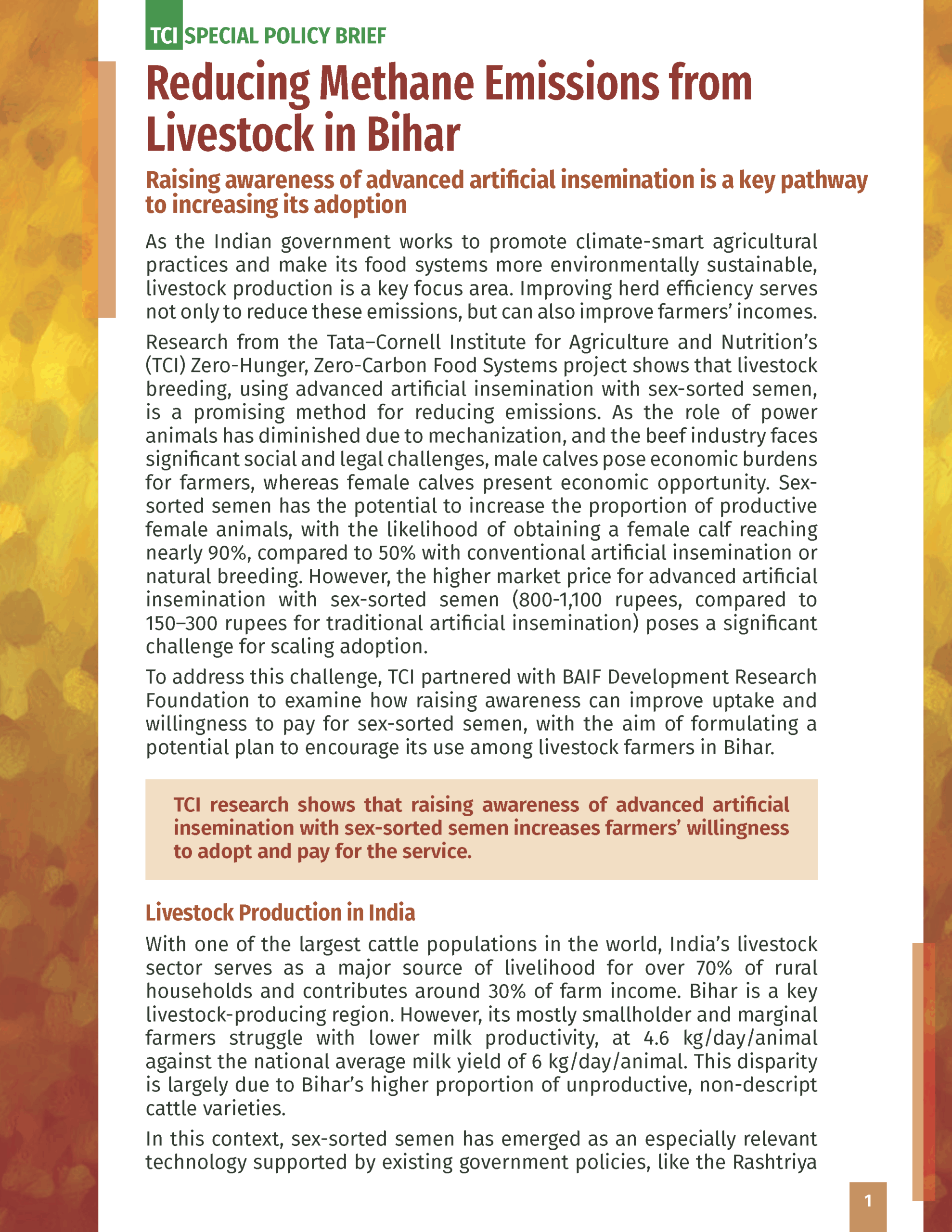
Reducing Methane Emissions from Livestock in Bihar
This special policy brief presents preliminary results from a TCI study on the impact of awareness campaigns on farmer adoption of advanced artificial insemination with sex-sorted semen for livestock breeding, a potential pathway for increasing productivity and reducing methane emissions from livestock production in Bihar....
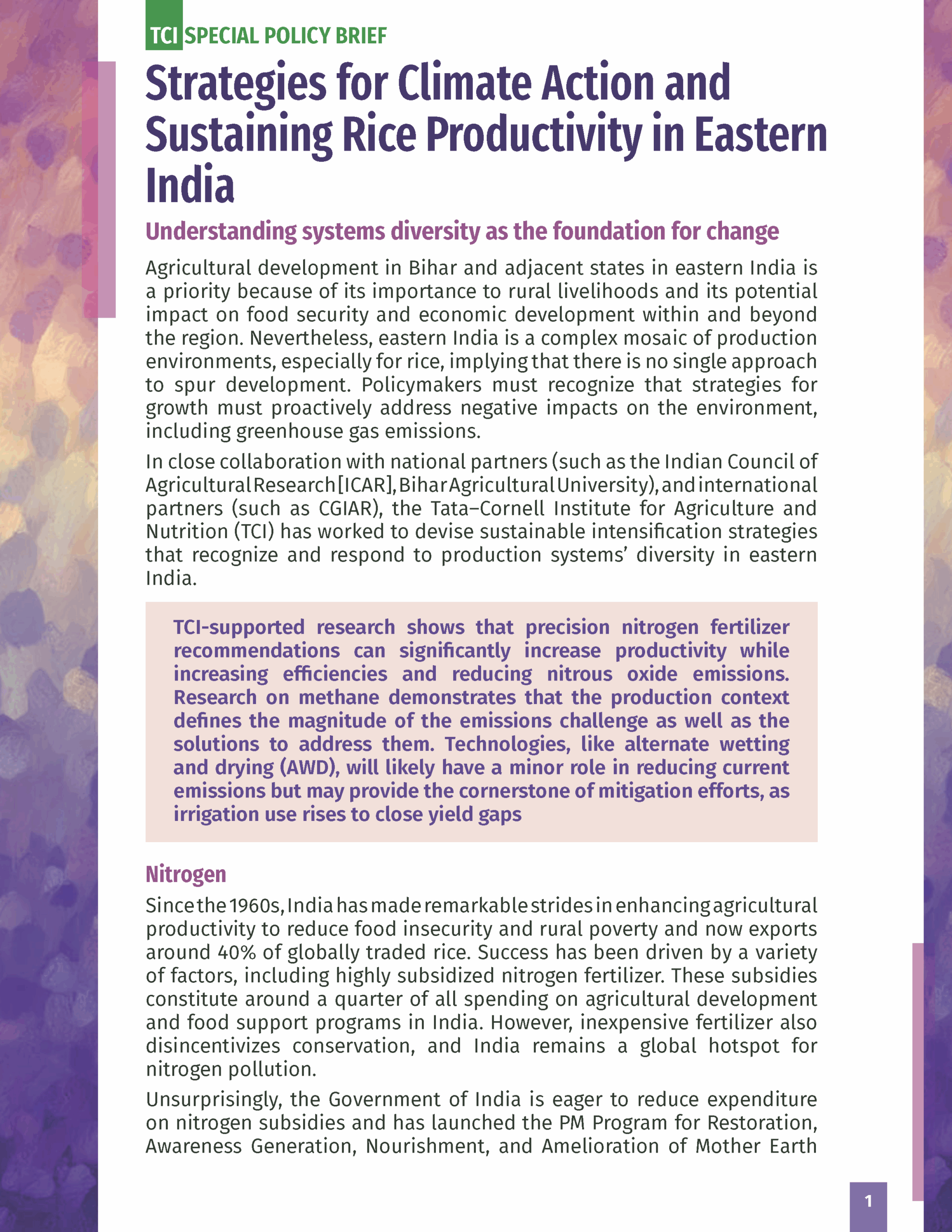
Strategies for Climate Action and Sustaining Rice Productivity in Eastern India
This special policy brief presents the results of TCI-supported studies aimed at enhancing the productivity of rice farms and reducing greenhouse gas emissions from rice production in Bihar. It examines strategies for increasing the efficiency of nitrogen fertilizer usage and demonstrates that the production context...
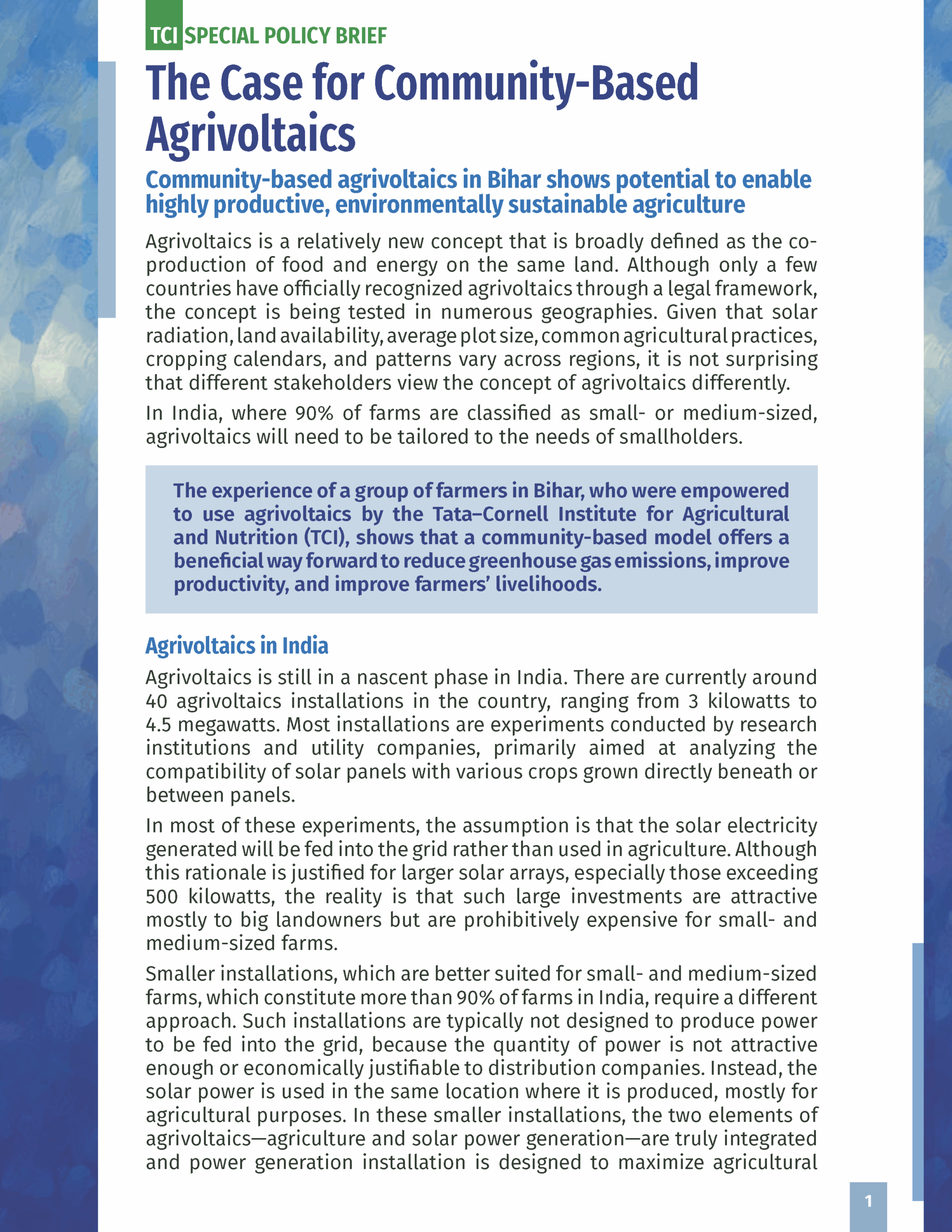
The Case for Community-Based Agrivoltaics
This special policy brief presents the benefits of community-based agrivoltaics for smallholder farmers in India, based on a pilot agrivoltaics site that TCI built with a group of farmers in Bihar. The brief provides an assessment of how agrivoltaics can help reduce greenhouse gas emissions,...

Promoting Agricultural Diversification and Climate Resiliency in India
This special policy brief estimates the potential reduction in methane gas emissions from the diversification of agriculture in Chhattisgarh, India. The analysis provides policymakers with information regarding pathways for combatting climate change by reducing agricultural emissions, making Chhattisgarh’s agricultural system more resilient to the effects...
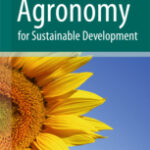
Transitions to Crop Residue Burning Have Multiple Antecedents in Eastern India
Abstract Far removed from the agricultural fire “hotspots” of Northwestern India, rice residue burning is on the rise in Eastern India with implications for regional air quality and agricultural sustainability. The underlying drivers contributing to the increase in burning have been linked to the adoption...

Essays in Agriculture Economics, Climate Change, and Nutrition
Abstract The dissertation consists of three essays in the field of agriculture economics, climate change, and nutrition. I have structured it as three chapters, namely ‘Fertilization Impact Of Atmospheric Carbon Dioxide On Agricultural Yield’, ‘Are Production And Consumption Decisions Independent? Identifying Separability In Indian Agriculture’,...
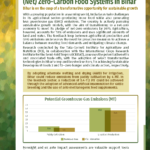
Pathways for Achieving Zero-Hunger, (Net) Zero-Carbon Food Systems in Bihar
This special policy brief provides estimates of the potential reduction in greenhouse gas (GHG) emissions that could be achieved in Bihar by adopting three transformational technologies in the state’s agricultural sector: alternate wetting and drying, advanced artificial insemination, and anti-methanogenic feed supplements. This analysis provides...
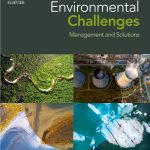
Hunger and Environmental Goals for Asia: Synergies and Trade-offs Among the SDGs
Abstract Rapid progress in hunger reduction in Asia has come at the cost of environmental degradation, while pursuing environmental conservation goals risk slowing further progress on hunger. Operationalizing the Sustainable Development Goals (SDGs) shows us the complexity of achieving multiple societal goals simultaneously. The lack of coordination across...

Whitman Barrett
Whitman Barrett received his MS in soil and crop sciences in 2024. His work focused on the reuse of human excreta in agriculture, with the goal of improving smallholder farmers’ productivity and resilience to climate change. He is passionate about…
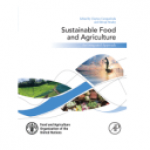
Policies for Sustainable Food Systems
Abstract Over the past 50 years, agricultural growth has contributed to jumpstarting overall economic growth and poverty reduction in many countries, but the progress has not been uniform and has often been accompanied by significant environmental costs. To adequately and sustainably feed the ever-growing population,...

